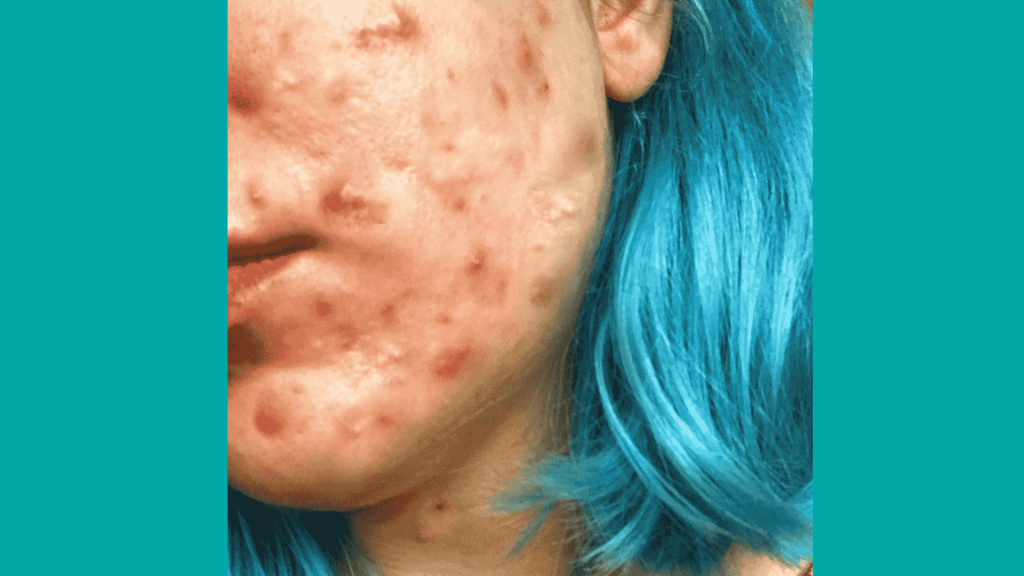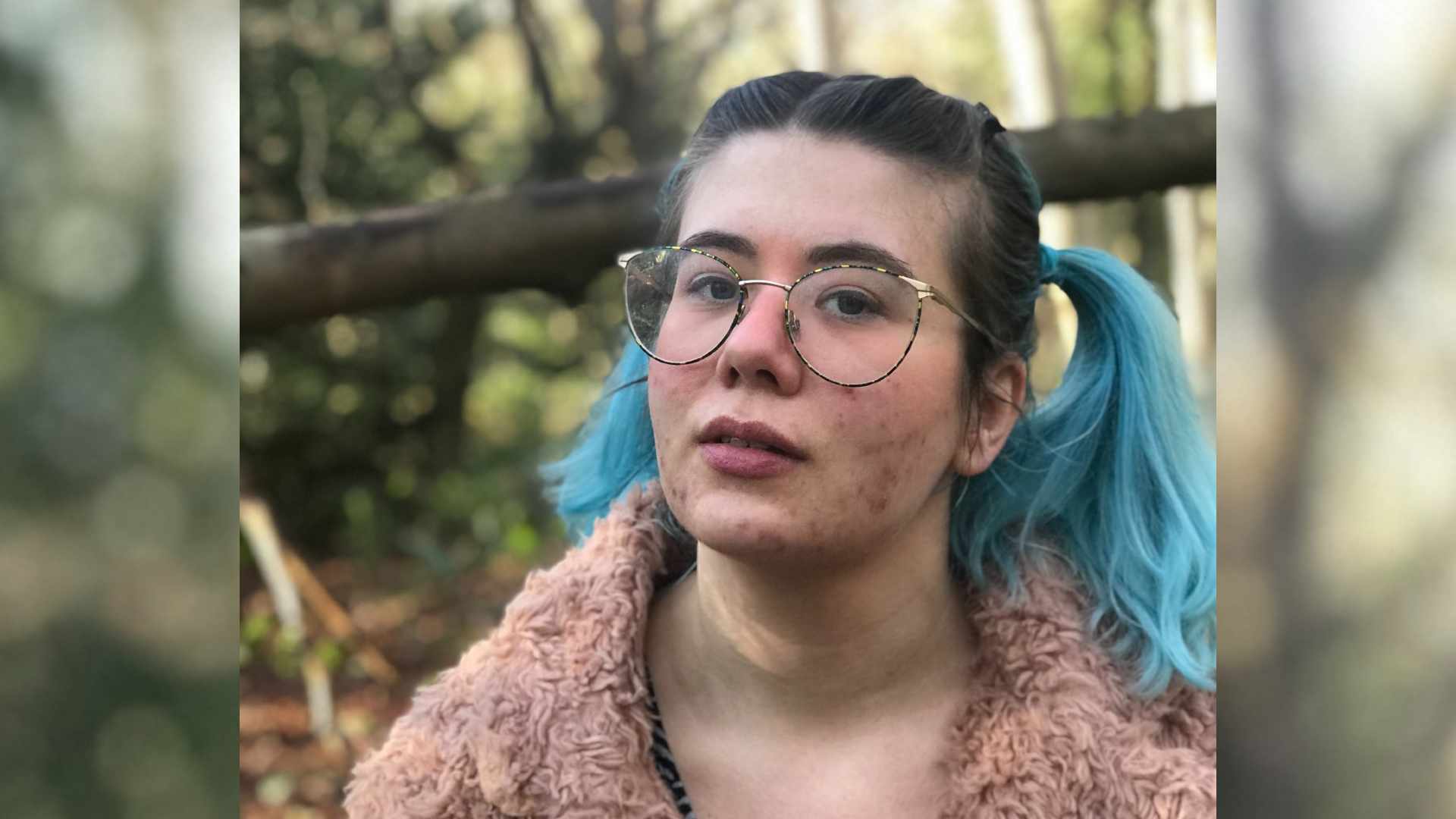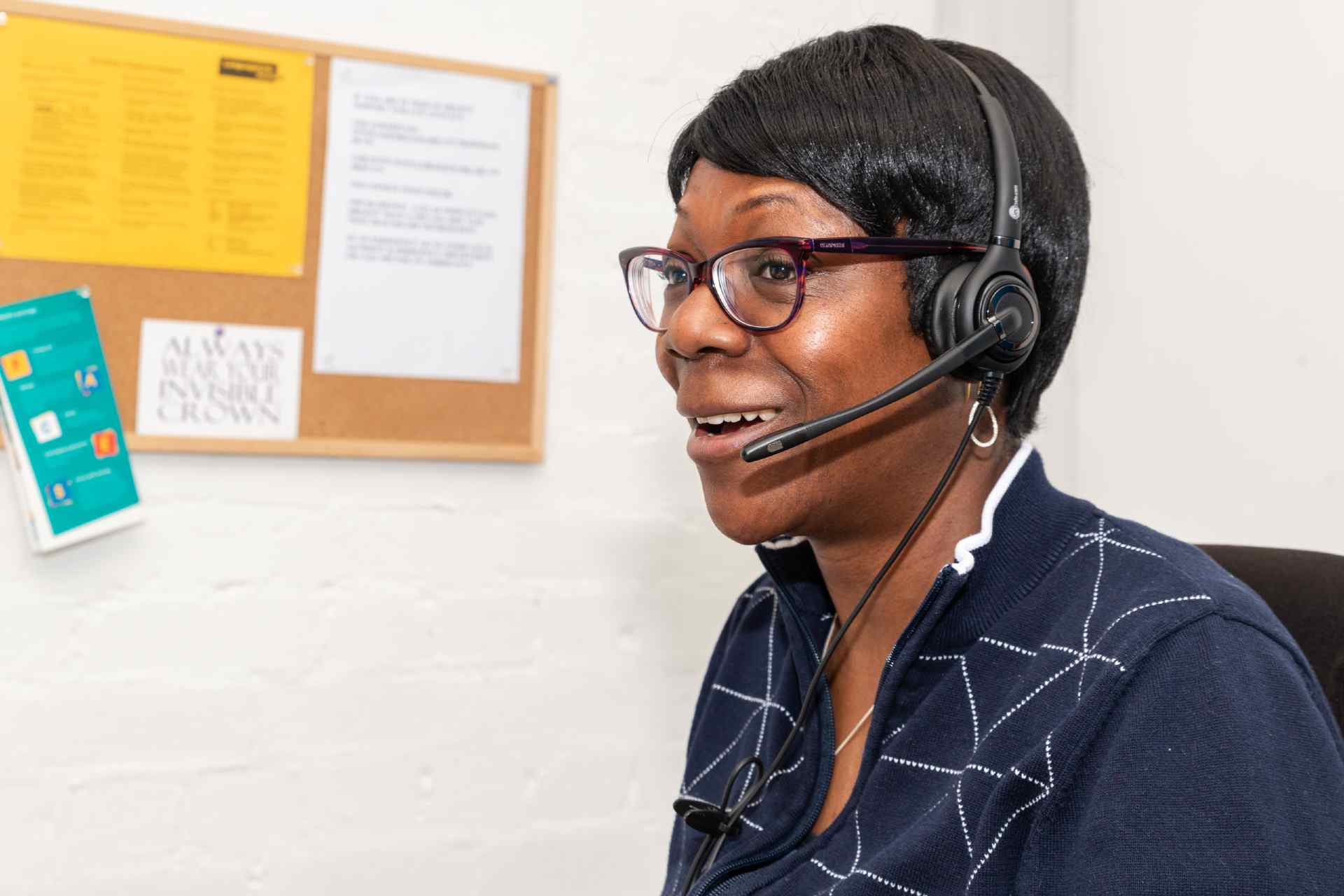I’m Rowan and I have acne. Acne has had an immeasurable impact on my life. I genuinely feel like so much of my experience of the world has been through the lens of someone with a skin condition – whether it’s the way it’s affected my sense of self, or the way other people perceive me.
In our society, acne is intrinsically linked with not just “unattractiveness”, but also implications of poor hygiene or care. The few characters we see on screen with acne are given the condition to portray a social pariah status, unpopularity and undesirability, or villainy. It is hard not to internalise these ideas or at least be overly aware of other people’s biases in this regard.
The physical pain that acne causes means it’s impossible to forget you have it – you are constantly aware of it. And yet it is ever changing, you can look different from one hour to the next, so it can be hard to reconcile your appearance with a consistent inner self.
I’ve gone through periods of my life where I’ve felt more comfortable with my acne, but there have been others where it’s left me with a deep sense of social anxiety.

Rowan has faced unwanted comments about her acne
Stares and comments aren’t unusual. I try to ignore them as much as possible, which is of course easier said than done! The most upsetting incident was at A&E when I was in my early twenties. I had waited hours and was finally being seen by a doctor for an issue that was causing severe pain. The doctor diagnosed the problem and goes to type up the prescription. Then, out of nowhere, he hums in disapproval and says to me, “You know you should really do something about that acne.”
This was a time in my life that I felt reasonably at peace with my skin. I was taken aback. I’d spent over ten years at that point “doing something” about my acne – from diet changes to skincare to medical treatments – and so to have this huge insecurity brought up at this moment of vulnerability was really upsetting. I was too shocked to say anything at the time, but telling the story afterwards has become its own form of catharsis. I now know that people’s comments are a reflection on them, not on me.
I started creating YouTube videos full time in 2021. This has made me even more aware of the pressures, particularly on women, to maintain a particular “minimum” standard of “beauty”. If a woman is too fat, too hairy, has acne, or any number of other “differences” to the mainstream ideal, then they can expect comments – or abuse – about it. For example, I feel there is an expectation for me to wear makeup in my video essays, to present a version of myself where my appearance is “professional”. I’ve developed a sense of confidence in ruminating on that absurdity.
The thing that made the most impact was connecting with people who understood because they were also going through the same thing.
Something I’m very proud of is a video essay that I produced on the representation of acne on screen – it’s a topic that a lot of people thanked me for covering, whether they had acne or not, as it enabled them to realise the negative messages they were absorbing.
Too many people hold biases relating to visible differences, which can have massive individual impacts. Having acne, for example, has been shown to impact people’s employability, as well as how people perceive aspects of their moral character and personality. We need to challenge these unconscious judgements and encourage people to unpack what is behind them.
Having acne is never a linear journey. I’ve struggled to different degrees with the condition for as long as I’ve had it. I recently found a medication that worked on the underlying cause of my acne (hormonal issues) and it has gotten rid of 90% of my acne – but I don’t necessarily feel like I reached the level of acceptance with my skin I would have liked to before that change.
The thing that made the most impact was connecting with people who understood because they were also going through the same thing. People who wouldn’t give out of touch “advice” or complain about their skin being awful after one pimple. It’s a lot easier to treat acne as a neutral aspect of your appearance when you aren’t the only person going through it.

